Animating Narratives in Research
16 April 2025The film In and On their Own Terms by Sarah Skyrme (to which I contributed the animation) is now online.

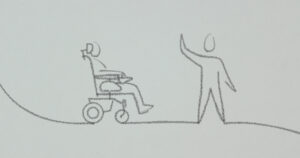
The film In and On their Own Terms by Sarah Skyrme (to which I contributed the animation) is now online.


When a pepper pops, a baby comes out; obviously…

The film In and On their Own Terms by Sarah Skyrme (to which I contributed the animation) is now online. The music is by Wez Allard.
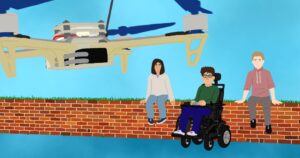
The film In Spate by Sarah Skyrme (to which I contributed the animation) is online. The music is by Wez Allard.

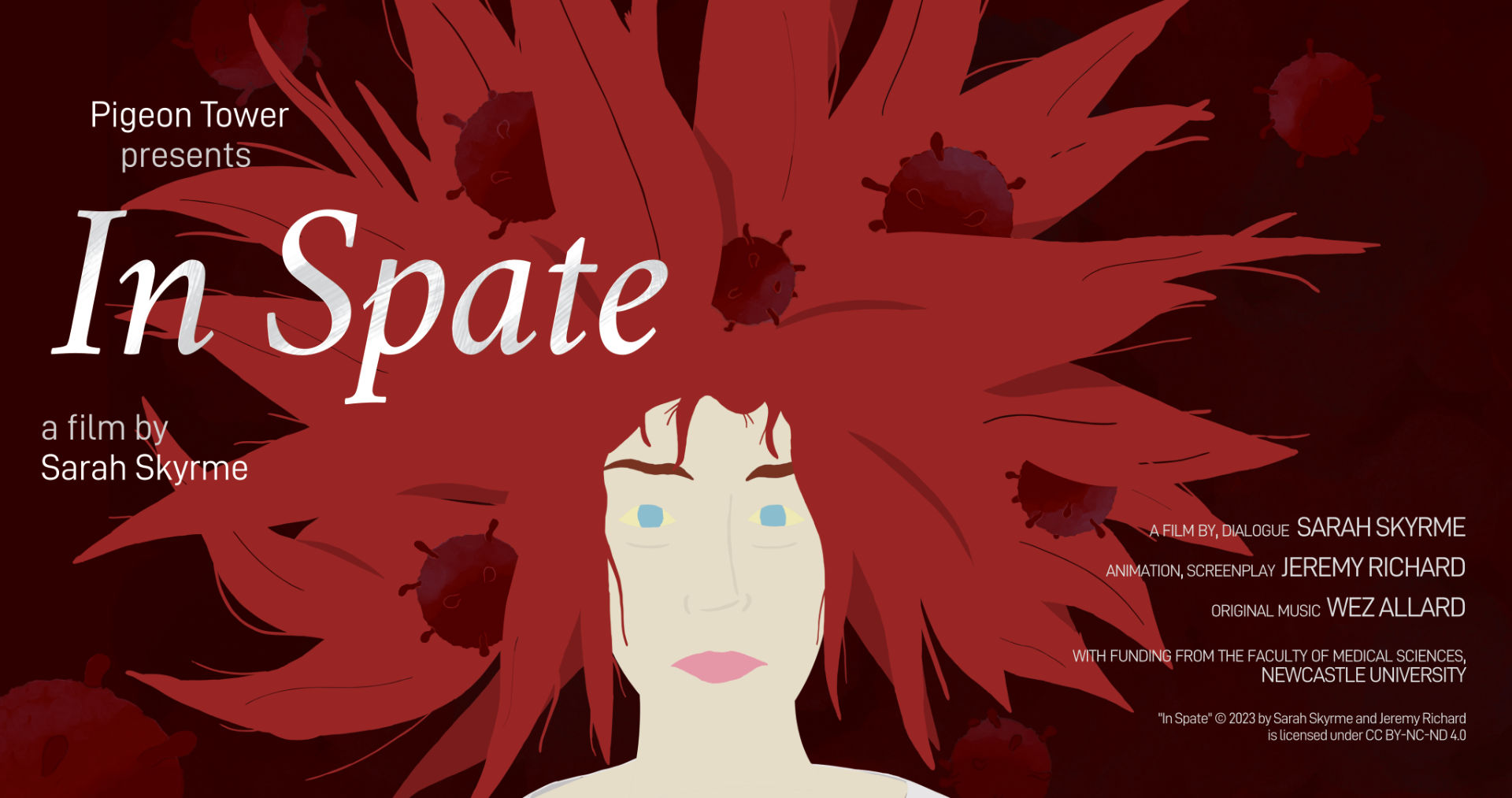
The Living With DMD and Decision-Making poster I created based on interviews conducted by Dr Sarah Skyrme with boys and young men who have Duchenne muscular dystrophy (DMD) .
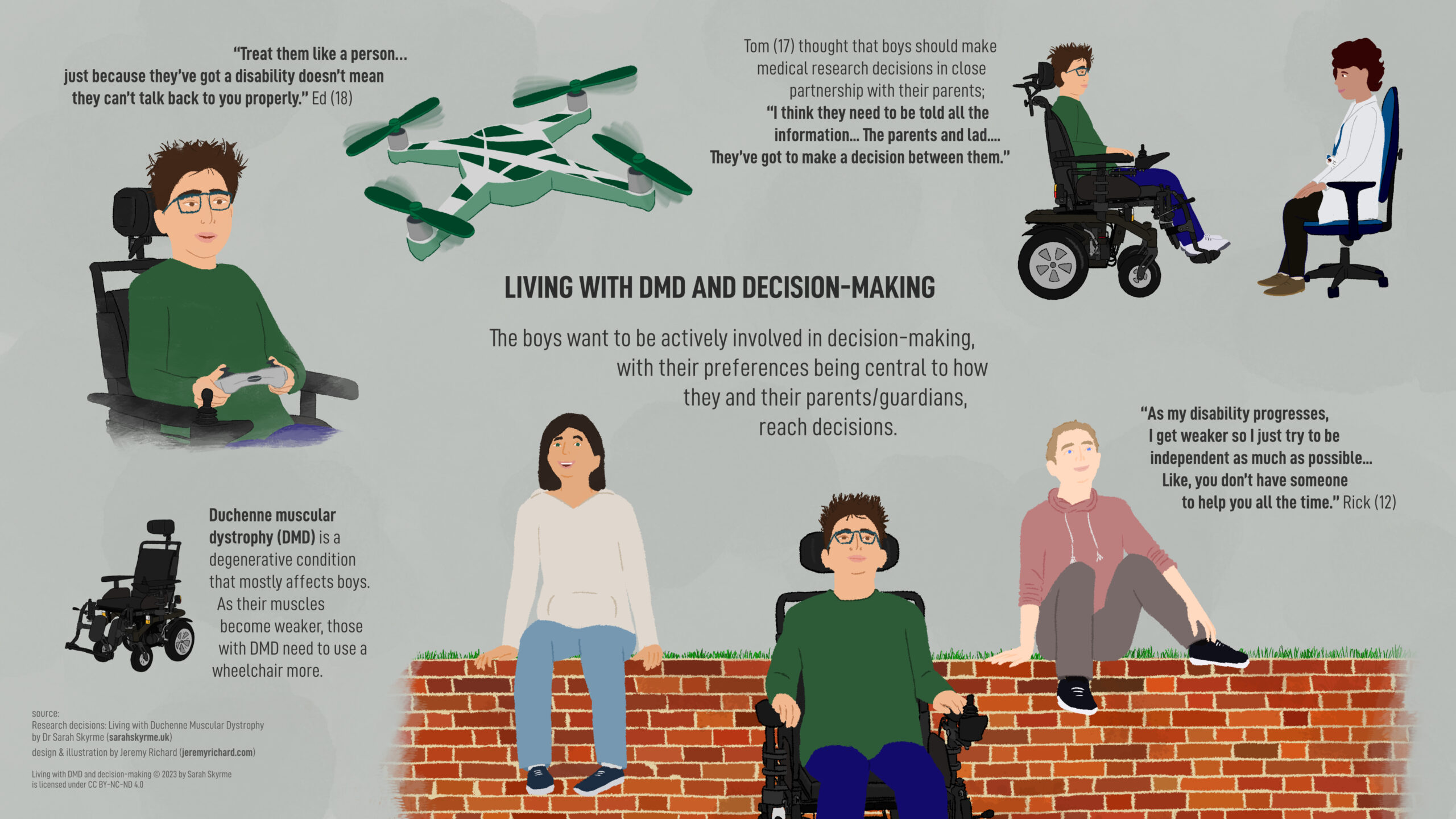
Sarah Skyrme‘s film In Spate, to which I contributed the animation, has been nominated for the PRISMA Best animation short award of September 2023.
9 December 2024
In Spate has received more nominations.

Here are infographics I made to accompany an article and a database appreciating the factors that affected nurses’ use of digital technology during the COVID-19 pandemic.

Trailer for the upcoming film In Spate by Sarah Skyrme to which I contributed the animation.

I made syntax highlighting for TVPaint’s George scripting language to use with Notepad++, Sublime Text and on web pages.
Seeing the Patient a video presentation by @SarahSkyrme to which I contributed the animation.
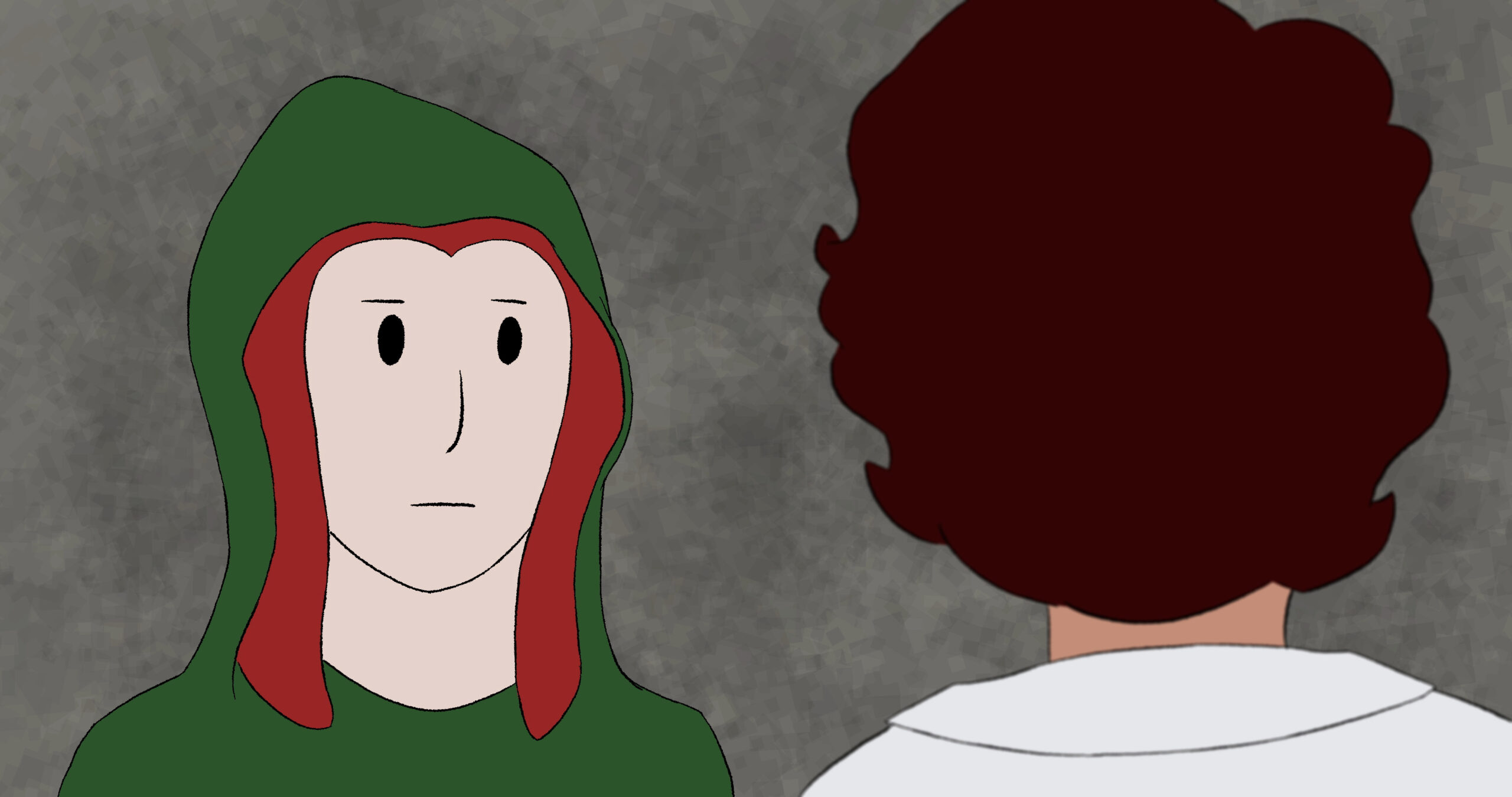
Sharing a post by Stefan Riekeles:
Original artwork of Ghost in the Shell, cut no. 477, painted by #HiromasaOgura. Three layers are superimposed onto each other and moved very slowly at different speeds during the animation process to create an effect of spatial depth.

Using Moho to keep on model:
To keep the quality consistent, for characters like crocodiles we received a rough animated pass made by the amazing Animation team and then created rigs considering each scene’s needs. This rough could be very loose, since the rig was in charge of keeping everything on model.
Víctor Paredes @paredesbubu Nov 19, 2022
Insightful technical how-to about the making of the underground sequence, and how to make the character’s animation fit the camera movement, in The Last Belle, short film by Neil Boyle, layout by Roy Naisbitt. From 13min 30s:

The lilies are blooming, that’s my take on it anyway.

Sharing a tribute by @BricksInMotion:
We are deeply saddened to hear of the passing of Tony Mines of Spite Your Face Productions, after a battle with terminal cancer. His impact on the brickfilming community with films such as “The Han Solo Affair” and “The Peril of Doc Ock” cannot be overstated. He will be missed.

This is nicely presented. My interpretation of the whole process would be like the following:

Move a session from Adobe Audition to Davinci Fairlight, via Premiere Pro:
In Audition, make sure the “Time Format” setting is set to the correct framerate (under “Preferences > Time Display…” ) before exporting as XML file.
During the transfer the track names, set in Audition, will be lost.
Segundo de Chomón and his use of stop motion and optical illusions in the “Haunted House” (1906) to spooky effect: https://archive.org/details/LaMaisonEnsorcele. More of his films here:

Matching film’s depth of field in 2004: “The team learned that the best thing to do was to keep f-stop settings on the digital cameras wide open (f2.8) and to keep the focal length long. This helped DV approximate film’s shorter depth of field.”
Creating proxies in 2004: “All film material was sent […] for processing and telecine transfers (best light) directly to Betacam SP and DVCAM with matching timecodes and window burns. Those tapes were then digitized for the offline.”

fxguidetv #200, Celebrating animation: about character animation or how to hum through keyframe animation and thinking in beat (of music).

Report by the European Audiovisual Observatory about the production, exportation and admissions or share of animated films, TV and VOD programs from 2015 to 2020.
The Unseen Life Drawn Out a video presentation by @SarahSkyrme to which I contributed the animation.
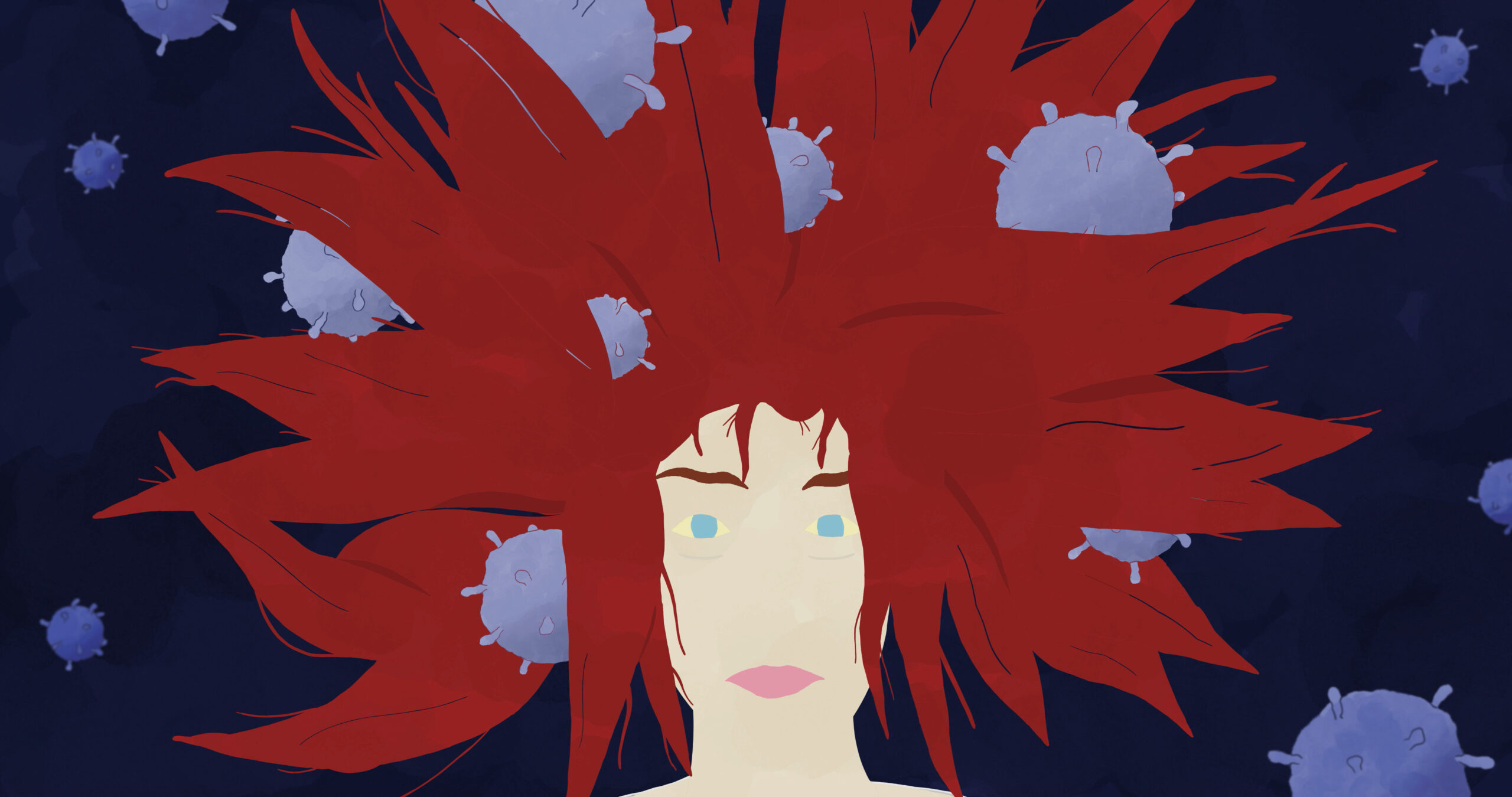
Sadao Tsukioka Interview by @autodesk_me_jp with insight on the origins of limited animation in Japanese animation:

Un aperçu du travail de coloriste d’animation avec Lesceline Haase et une démonstration avec Mathilde Lathière.
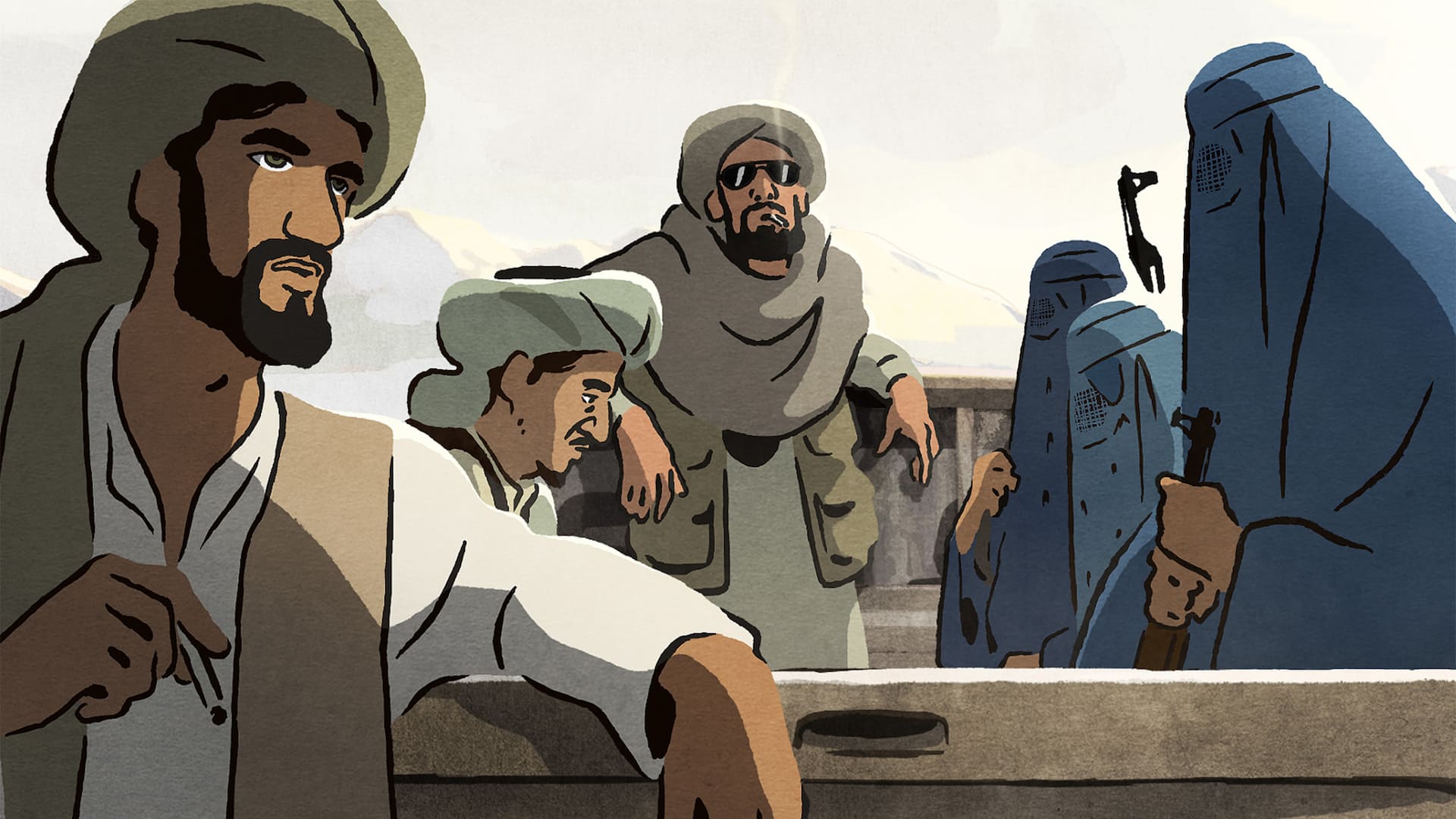

Making visual effects before the advent of computers using an optical printer by @fxguidenews. With a demonstration of how to reproduce the experience and limitations of such a system in After Effects:

The NFB pays tribute to master animator Jacques Drouin (1943-2021)
Makes reference to this post.

Experiences of an independent animator. Animation Island: Aidan Hickey, a @MeetYourMakerIE podcast, and one of Aidan Hickey’s films: Inside Job, made in 1987.


Natron: free compositing software (https://natrongithub.github.io/#download). Working in the node view of Toon Boom Harmony, could serve as an introduction to Natron. Here’s a helpful tutorial by @openvisualfx which helps understand the principles of node-based compositing.

Sharing a post by @BricksInMotion:
Want some tips on achieving better animation? Rioforce explains a few of the 12 principles of animation and how they can be achieved in brickfilming.
Check out the video and article on Bricks in Motion.

State of affairs of the UK animation sector in 2011 in this study by Robert Kenny and Tom Broughton: jeremyrichard.com/documents/secu. And the impact of the tax reliefs on the sector in 2018, see page 92 of this report comissioned by the BFI:

Data regarding the health of the French animation sector in 2019, such as production, distribution or TV and streaming services audiences. Report by the CNC (https://cnc.fr/web/en/about) and AnimFrance (https://animation-france.fr) (in French)
The article “Chico & Rita Integrates Seven Studios”: a detailed view on the intricacies of a production pipeline taking place around the world or how important it is to name and structure your folders.

The making of Tim Burton’s Corpse Bride: when using a commercial digital SLR camera designed for still photography was a novelty
Here is an extract from the film ‘In Spate’ directed by @SarahSkyrme (https://sarahskyrme.uk) towards which I am contributing:

An exhaustive look at the history of After Effects but also at CPU, GPU and how it is all linked together or not quite (in 15 parts):

Play image sequences using the software djv; also useful to check animated sequences (https://darbyjohnston.github.io/DJV/)
Makes reference to this post.
Sharing a tribute by @Aardman.
Aardman co-founder @PeteLordAardman pays tribute to Richard Williams – legendary animator and dear friend of the studio:

Moving forwards or backwards one frame at a time using mpv (https://mpv.io): press the comma key (,) to go backwards, press the dot key (.) to move forwards. Useful when reviewing an animated or visual effects sequence (https://mpv.io/manual/master/).
The History of Brickfilms Part 1 & 2, covering the 1970s, 1980s and the 1990s by Seán Willis @sillypenta: a thorough and well-documented exploration of the dawning of stop motion film making using Lego.

Layla is part of the official selection of the Thessaloniki Animation Festival 2018, competing for the Select Respect Award. http://tafestival.gr

Les bébés naissent dans les choux / Babies are found in the cabbage patch, at least that’s my take on it:

Layla, an animated film by the artist Julie Del’Hopital to which I contributed:

More on the technical side of the Lego Movie:

A Scanner Darkly (2006): a story adequately told in floating rotoscope.

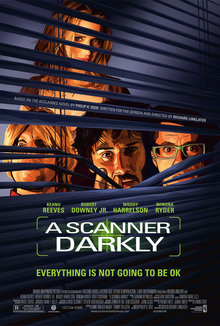
When visual and special effects work together, why the VFX of Jurassic Park and Starship Troopers hold up:
Cycling through blending modes in After Effects: select layer; hold down the Shift key and press the plus key (+) or the underscore key (_).
The Last Conversation of Condemned Trees (my wildlife photograph #10)

My animated season’s greetings:

Boy and the World (2013): visual poetry, the lines of which draw a powerful and emotional message cleverly told

Pins, sculpture & light: pin-screen animation mastered in Le paysagiste by Jacques Drouin.

Green with envy (my wildlife photograph #9)

Sharing a video by Filmmaker IQ about the soviet theory of montage

Gandahar (1988): symbiosis between action and intelligence imaginatively drawn.

The Animatrix (2003): forceful action skilfully animated.


Cricket-Man, in cinemas now! (my wildlife photograph #8)

Tintin et le lac aux requins (1972): a good-natured atmosphere neatly drawn

Sharing an article by Chris Zwar:
When compositing different elements, it’s important to colour correct them so they match.
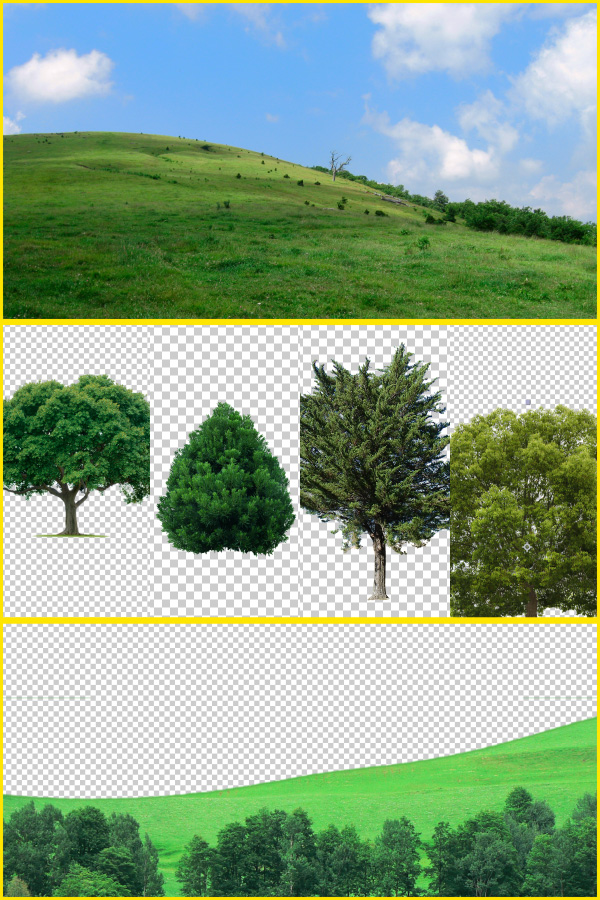
Working on several Media Composer projects at the same time? Here’s my post on how to handle the media files: https://jeremyrichard.com/article/rename-the-media-folder/
Film metadata tracking by Scott Wood: https://jeremyrichard.com/wp-content/uploads/2015/07/FilmMetadataTracking-ScottWood-2002.pdf (presentation file)
Behind bars (my wildlife photograph #7)

Large Frog by Eduardo Paolozzi (1958) a world in itself, a science fiction drama in its bronze.

Orphan Works Licensing System “enables user to apply for permission to use the orphan works”


Look the Lego in the eye… My film ‘Malheur’ at the creatively fizzy #ASFF2014 by @asffest. Photograph by @jimpoyner
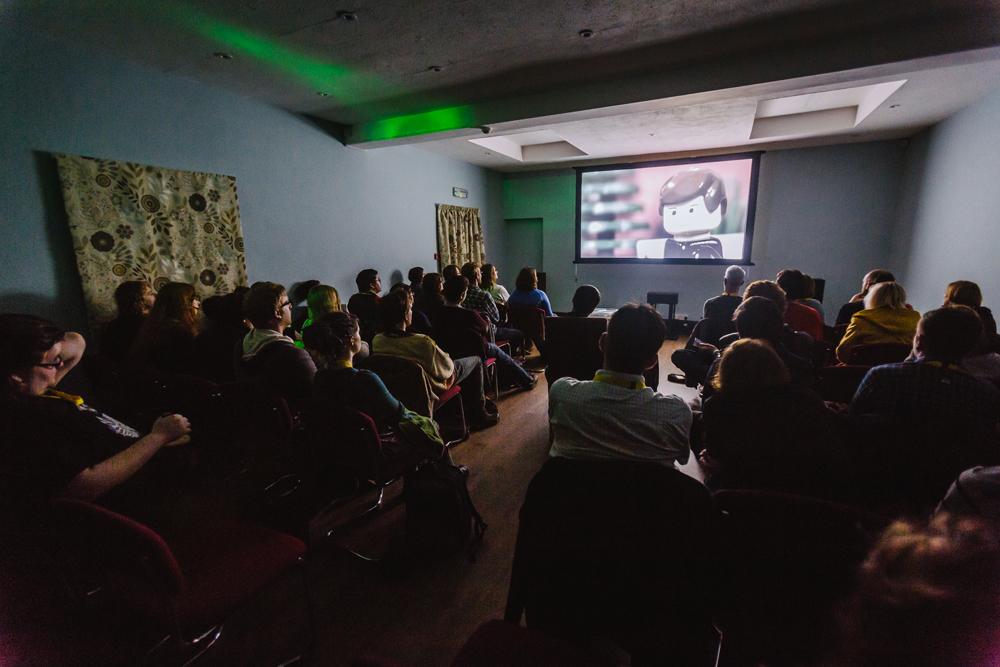
He did tell his mother that, one day, he would be a rock star (my wildlife photograph #6)

Millennium Actress (2001): storytelling in all its smoothness; very clever editing

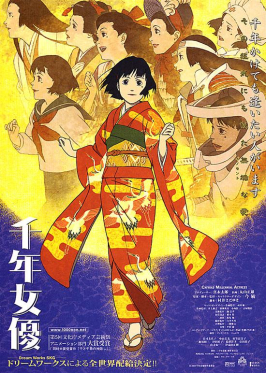
He was a proper biker in his youth (my wildlife photograph #5)

Bird in a Window (1996): sound ruthlessly drawn

Sharing an announcement by @vaticinatepics:
#IWMFilmFest announced – Our film The Crackling Glade is on October 24th 2pm, 26th Noon, November 1st Noon, 7th Noon https://www.iwm.org.uk/collections-research/iwm-short-film-festival/film-festival-programme
Sliding into the dew (my wildlife photograph #4)

A post of mine on how to convert an image sequence into a video using Quicktime Pro or ffmpeg: https://jeremyrichard.com/tip/from-an-image-sequence-to-a-video/
I am very pleased with the official selection of ‘Malheur’ at the Aesthetica Short Film Festival 2014. @asffest

Chico & Rita (2010): when love is only matched by music. Profoundly nostalgic.

“Stop moaning about the rain, at least we got good seats” (my wildlife photographs #3)

Flåklypa Grand Prix (1975): brilliantly executed animation for a smilingly colourful film.


In cinemas now, in full pixillation @NFB_Jennifer “The ghosts of lost animators who never found their way out of the building.”
ffmpeg without Homebrew? Not your cup of tea? Here’s my post on how to install ffmpeg in OSX and Windows: https://jeremyrichard.com/tip/install-the-ffmpeg-command-line-tool/
Sticky dream: hers was to be a painter… (my wildlife photographs #2)

Krysař (1986): eerily distorted visual, forceful soundtrack, fiercely slow editing; humankind in all its repugnance.

On the heights overlooking wild grass, she believed she could fly… (my wild life photographs #1)

Fantastic Planet (1973): electro-rock-organic drawing and sound for a poetically wild film.
Instructive evening @motionnorth with talk from a passionate @terrytreedavid on how to make actors look smart with complex interfaces.
Enjoyable evening at Trispace, London, watching great quality shorts, meeting inspired directors & presenting my film Malheur https://www.facebook.com/events/666164843471719/
My short films now surrounded by Doctor Who; Bruce Lee is still here.

Video editing. Here is a post I wrote on how to join through edits with Avid MC and FCP 7: https://jeremyrichard.com/tip/join-through-edits/
Ruins of Holyrood Chapel, 1824: a darkly penetrating atmosphere; a striking work of lighting
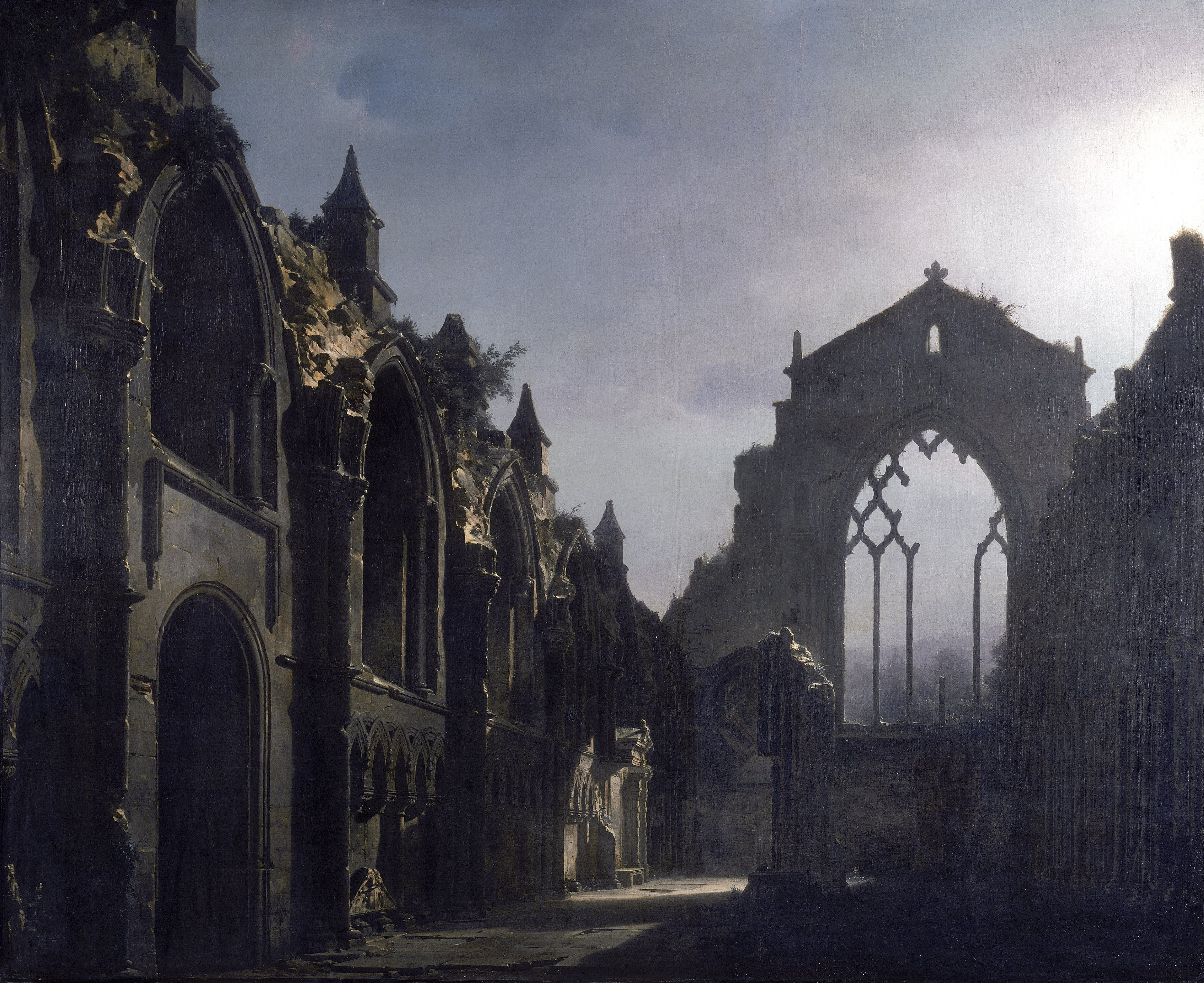

La demoiselle et le violoncelliste (1965): Romance and its tragedy beneath the sea, musically exquisite.

Films on bookshelf. My short animated films amongst books at Paramount Books in Manchester.

Runcorn Suspension Bridge (1913): a cinematographically dramatic vision of industrial times. It’s the Runcorn-Widnes Transporter Bridge, demolished in 1961, drawn in the background. http://www.liverpool-city-group.com/liverpool-history/liverpool-artist.htm

Germinal (1885): a devastatingly powerful novel without mercy for humankind.

The Mascot (1934): both a thrillingly and grimly imaginative film with humourous sprinkles.

« Si les points de suspension pouvaient parler, ils pourraient en dire des choses et des choses ! » Pierre Dac